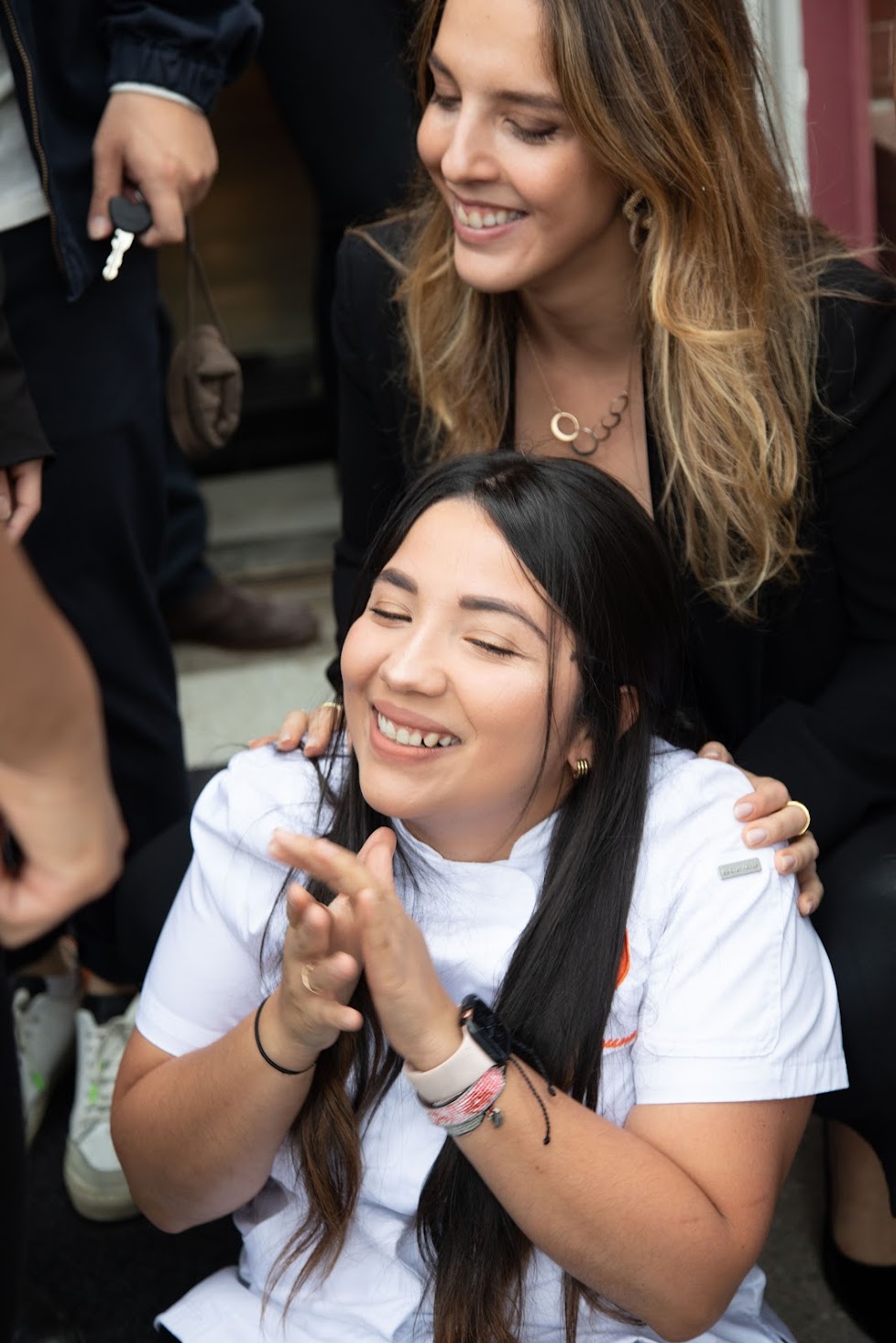
June is Immigrant Heritage Month, and for this month’s Think Table, we are highlighting the people who make Immigrant Food special. For this month’s Big Read, we are chatting with two badass women of Immigrant Food, our Co-Founder and Chief Operating Officer Téa Ivanovic and our Head Chef Mileyda “Mile” Montezuma.
Have more questions for them? Tweet @immigrantfooddc or DM us @immigrantfood!
From where did you immigrate to the US and how did you end up in Washington DC?
M: I immigrated from Barquisimieto, Venezuela. I came for an internship with Chef Enrique Limardo at Alma Cocina Latina, an amazing restaurant in Baltimore, and then followed Chef to Washington DC.
T: I immigrated from Belgium to come to college. I received a scholarship to play varsity tennis at Virginia Tech, then stayed for graduate school at SAIS, and ended up staying in Washington DC.
What makes you proud of being a part of Immigrant Food?
M: Immigrant Food is an open organization and a meritocracy, where we pride ourselves on internal promotions and strong community. Alba Galdamez, a line cook and immigrant from El Salvador, was recently promoted to Kitchen Manager of our flagship location because of her strong work ethic and talent. Matthew Ludovico, a first generation Filipino- American joined us as policy intern and is now an assistant general manager at our newest restaurant location. And Luis Lopez, who also started as a line cook when we opened in 2019, has now been promoted to Sous Chef at our upscale restaurant, Immigrant Food+.
T: I’m proud of Immigrant Food’s dual mission and the challenge of pioneering a new type of restaurant company. At the end of 2019, we opened our first restaurant as the White House’s neighbor – we’re literally the next building after the White House. There are two beating hearts to Immigrant Food: A kitchen that brings people around the table to celebrate immigrant gastronomies, and a mission to be an effective advocacy platform on behalf of immigrants.
What do you connect the most with at Immigrant Food?
M: We created a fusion menu that celebrates immigrant gastronomies. This was such an exciting process for us, and we did a lot of preparation. For example, we created a “Spiderweb” of immigrant spices, herbs, and ingredients and then started connecting them. We tasted and tested until we found complimentary flavors and then started combining and “fusing” them.
T: We founded Immigrant Food because we wanted to do something about a resurgent intolerance against immigrants; about an instigation of xenophobia by those in power, and about a country we no longer recognized as the welcoming beacon of hope it has always been for those huddled masses yearning to breathe free. We wanted to celebrate the culinary contributions of immigrants through an ambitious menu created by Chef Enrique and Chef Mile. But we also were determined to advocate and educate on behalf of immigrants. Corporate social responsibility has been an intrinsic part of our business model from the very start. We strongly believe that it’s not just large corporations, but also small and medium sized companies, that must take a stance on the social justice issues facing our country, and our world. We conceived Immigrant Food as a socially responsible company.
What does immigrant heritage mean to you? How do you celebrate immigrant heritage month?
M: Immigrant Heritage Month is about recognizing our roots. For me, I like to celebrate with delicious food. Chef Enrique and I are constantly coming up with new fusion dishes to celebrate our country’s diversity. I like to play this game: name five of your favorite dishes and then research whether they have immigrant origins. I bet that the majority of them do!
T: For me, Immigrant Heritage Month is about connection, community, and cause. We work with the immigrant community through our NGO partners. But we also strive very hard to connect our restaurants’ guests with the broader immigrant community through initiatives such as our Engagement Menu, The Think Table, and regular events hosted at our locations.
We are in constant contact with our NGO partners to ensure we are doing the best we can to engage, advocate, and support them. We are continuously finding creative ways to incorporate the mission into our business model: whether it’s by celebrating refugee chef’s and helping them find employment through our mentorship program with the NGO Tables Without Borders where we jointly created two new menu items with two refugee chefs; or by distributing more than 25,000 community meals during the depths of COVID through partnerships with World Central Kitchen or our own #PlateitForward initiative. We are working tirelessly to keep our two beating hearts alive: gastronomy and mission – or, Gastroadvocacy.
What do you wish more people knew about immigrants, refugees or others that are new to the community?
M: It’s very difficult to be an immigrant and move to a completely different country, or continent. People who were born here forget that daily life around the world is very different from that in America! From laws and regulations, to taxes, to even more ‘simple’ things like the tipping system in restaurants, immigrants and refugees have to get adjusted to these new structures. And those who were born here and grew up here are just used to them.
T: Those of us who still believe in the promise of this country, need to take a stand. And businesses must be at the center of this fight, they must stand up for the important social justice issues of today. Not only huge companies like Patagonia or Nike. Also small and medium sized business. And there are few issues where the fight is more clear and the outcome more just than the fight to demand justice and change this country’s outdated and seriously flawed immigration system.
